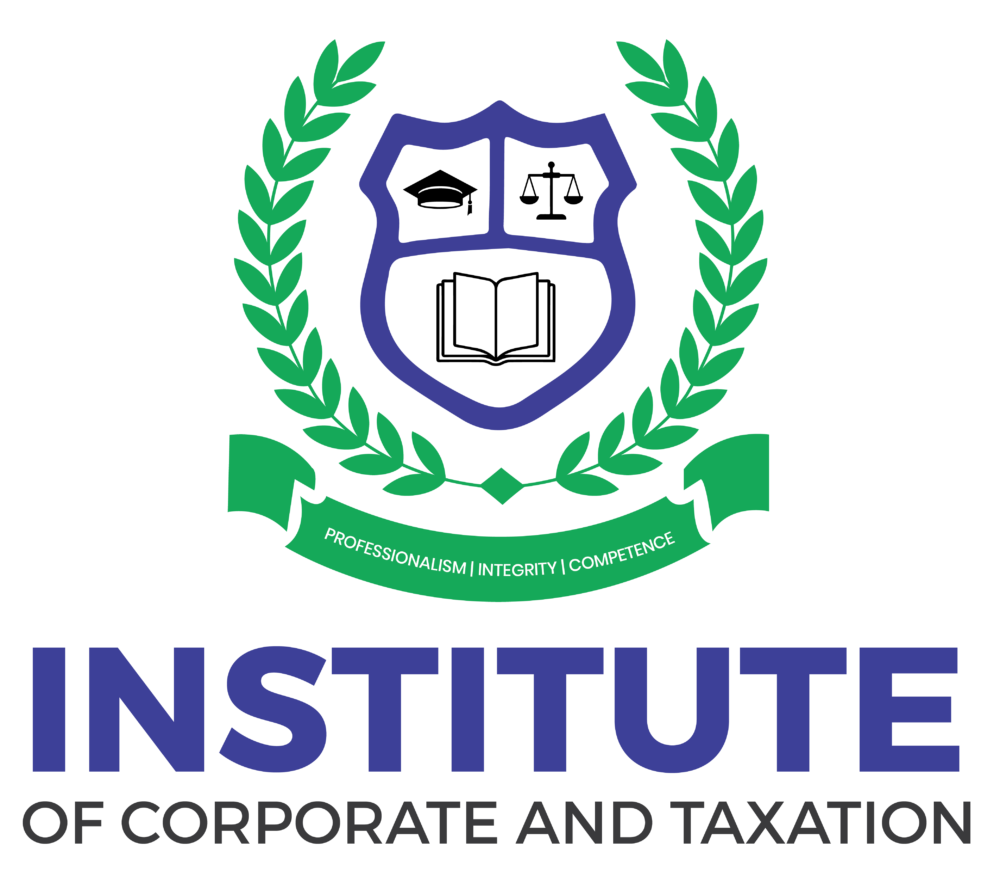
Top 5 Mistakes Pakistani Taxpayers Make in Filing Returns
Top 5 Mistakes Pakistani Taxpayers Make in Filing Returns
income tax return filing Pakistan should be straightforward, but thousands o f taxpayers make simple mistakes every year that cost them money, time, and even their position on the Active Taxpayer List (ATL). Whether you’re filing your FBR income tax return for the first time or you’ve been doing it for years, understanding these common pitfalls can save you from penalties, rejections, and unnecessary stress.
The Federal Board of Revenue (FBR) has made significant improvements to its e-filing system through IRIS, but many taxpayers still struggle with the process. From missing deadlines to incorrectly declaring income, these errors can have serious consequences. In this guide, we’ll walk you through the top five mistakes Pakistani taxpayers make when filing their income tax returns in 2025 and show you exactly how to avoid them.
-
Late Filing of Returns – Missing Deadlines and Losing ATL Benefits
One of the most common mistakes taxpayers make in Pakistan is filing their income tax return after the deadline. The FBR typically sets September 30th as the final date for filing returns for salaried individuals, but many people miss this crucial deadline.
Why Filing Late Is a Costly Mistake
When you file your tax return late, you face multiple consequences. First, you’re automatically removed from the Active Taxpayer List, which means you’ll face higher withholding tax rates on various transactions. For example, cash withdrawals beyond Rs. 50,000 per day attract withholding tax, and non-filers pay significantly higher rates on property purchases, vehicle registrations, and even mobile phone usage.
Additionally, late filing attracts penalties under Section 182 of the Income Tax Ordinance 2001. The penalty can be 0.1% of the tax payable for each day of default, with a minimum penalty of Rs. 1,000. For business owners and high-income individuals, these penalties can quickly add up to substantial amounts.
How to Avoid This Mistake during income tax return filing Pakistan
Set reminders well before the tax return filing deadline Pakistan 2025. Create a checklist of all documents you’ll need, including salary certificates, bank statements, investment details, and property documents. Consider working with a tax return accountant near me if you have complex income sources or if this is your first time filing.
Many taxpayers also benefit from enrolling in professional taxation courses to understand the filing process better. The Institute of Corporate and Taxation (ICT) in Islamabad offers comprehensive training programs that cover everything from basic filing procedures to advanced tax planning strategies.
-
Incorrect Income Declaration – Not Reporting Full Income
Underreporting income is one of the most serious errors to avoid in filing FBR returns. Many taxpayers mistakenly believe they only need to declare their salary income, but the FBR requires you to report all sources of income, including business profits, rental income, capital gains, and even foreign income.
Common Income Declaration Errors
The wrong calculation of taxable income Pakistan often stems from:
- Not reporting rental income from properties you own
- Omitting business or freelance income, especially for those earning online income
- Forgetting agricultural income above the taxable threshold
- Excluding capital gains from selling property, stocks, or other investments
- Not declaring foreign income, which is taxable for Pakistani residents
The FBR has sophisticated data-matching systems that cross-reference your declared income with information from banks, NADRA, property registrars, and international tax authorities. When there’s a mismatch, you’re likely to receive a notice or face an audit.
How to Get It Right
Gather all your income documentation before you start the online tax return process. This includes:
- Salary certificates from all employers during the tax year
- Bank statements showing all deposits and interest earned
- Rent agreements and rental income receipts
- Business income and expense records
- Investment statements and dividend receipts
- Records of any foreign income or assets
If you’re earning from multiple sources or have international transactions, consider taking advanced taxation courses at ICT to understand your reporting obligations fully. Professional training can help you avoid costly mistakes and optimize your tax position legally.
-
Wealth Statement Errors – Mismatch Between Assets and Declared Income
Problems in declaring assets in tax returns are increasingly common as the FBR strengthens its enforcement mechanisms. Your wealth statement must reconcile with your declared income, and any significant discrepancy can trigger an audit or investigation.
Understanding the Wealth Statement
The wealth statement is a comprehensive declaration of all your assets and liabilities as of June 30th each year. This includes:
- Immovable property (land, houses, commercial buildings)
- Motor vehicles
- Bank accounts and cash holdings
- Investments (stocks, bonds, mutual funds)
- Business interests and capital
- Jewelry and other valuable assets
- Foreign assets
The FBR compares the increase in your net wealth from year to year with your declared income. If you’ve acquired assets worth significantly more than your reported income, you’ll need to explain the source of funds.
Common Wealth Statement Mistakes
Taxpayers frequently make errors such as:
- Not updating property values based on current FBR valuations
- Forgetting to declare vehicles purchased during the year
- Omitting bank accounts, especially those with small balances
- Not reporting inherited or gifted assets properly
- Incorrect valuation of business assets or investments
- Inaccurate bank statement reporting in FBR returns
How to Avoid These Errors during income tax return filing Pakistan
Maintain detailed records of all asset acquisitions throughout the year, including purchase documents, bank transfer records, and loan agreements. If you received gifts or inheritance, keep proper documentation including gift deeds and estate distribution documents.

For complex wealth situations involving multiple properties or business interests, professional guidance is essential. ICT‘s taxation programs cover wealth statement preparation in detail, helping you understand how to accurately report and reconcile your assets with your income.
-
Claiming Wrong Tax Credits and Refunds
Tax credit misreporting Pakistan is a frequent issue that leads to income tax return rejection Pakistan. While legitimate tax credits and deductions can significantly reduce your tax liability, claiming credits you’re not entitled to or making errors in refund applications can cause serious problems.
Common Tax Credit Mistakes
Many taxpayers make errors when claiming:
- Education credits without proper fee receipts or for non-qualifying institutions
- Donation deductions exceeding the legal limits or to non-approved organizations
- Investment tax credits without proper documentation
- Withholding tax refunds when the tax wasn’t actually deducted
- Zakat deductions that aren’t properly documented
The FBR requires specific documentation for each type of tax credit. For example, education credits require fee receipts from recognized institutions, while donation deductions require receipts from FBR-approved charitable organizations with valid NTN numbers.
FBR Withholding Tax Issues
Withholding tax refund errors are particularly common. Many taxpayers claim refunds for advance tax they believe was deducted but cannot produce proper documentation. The FBR system automatically matches your claimed withholding tax credits against the actual tax deposits made by the deductors.
How to Claim Credits Correctly
Before claiming any tax credit:
- Ensure you have proper documentation (original receipts, certificates, etc.)
- Verify that the institution or organization is FBR-approved
- Check that the amounts are within legal limits
- Cross-check withholding tax certificates against actual deposits
- Keep digital and physical copies of all supporting documents
Understanding the nuances of tax credits and deductions requires expertise. Why choose ICT – Institute of Corporate and Taxation Islamabad? Their advanced taxation courses provide practical training on maximizing legitimate tax benefits while ensuring full compliance with FBR regulations.
-
Not Verifying NTN and ATL Status
Taxpayer errors with NTN and failing to maintain Active Taxpayer List status are surprisingly common mistakes that can have far-reaching consequences. Many taxpayers don’t realize their ATL status has lapsed until they face higher withholding tax rates or transaction restrictions.
Understanding ATL Importance
The Active Taxpayer List is published by the FBR and includes all taxpayers who have filed their returns on time. Being on the ATL provides significant benefits:
- Lower withholding tax rates on various transactions
- Ability to purchase property and vehicles as a filer
- Better banking facilities and higher transaction limits
- Professional credibility and compliance proof
- Eligibility for certain government contracts and benefits
Active taxpayer list mistakes often occur when taxpayers assume their status is automatically maintained or don’t realize their return filing had issues.
Common NTN and ATL Errors
Frequent problems include:
- Not checking ATL status after filing returns
- Using incorrect NTN during e-filing
- Not updating personal information linked to NTN
- Assuming online submission means successful filing
- Not obtaining acknowledgment receipts from IRIS
- Failing to verify payment of any tax due
How to Maintain Your Status
Regularly check your ATL status on the FBR website, especially before major transactions. After filing your return through IRIS, always:
- Download and save the acknowledgment receipt
- Verify your return appears in your FBR IRIS portal history
- Check your ATL status within 2-3 weeks of filing
- Ensure any tax payments are properly credited to your NTN
- Update your contact information so you receive FBR notifications
If you discover you’ve been excluded from the ATL due to filing errors, act quickly to resolve the issue. The FBR provides mechanisms to correct mistakes and restore your status, but time is critical.
How ICT Can Help You Avoid These Mistakes
Understanding income tax filing in Pakistan requires more than just following instructions on a website. The tax laws are complex, constantly changing, and full of nuances that can trip up even experienced taxpayers.
The Institute of Corporate and Taxation (ICT) offers specialized training programs designed specifically for Pakistani tax requirements. Whether you’re a salaried individual wanting to file your own returns confidently or a professional looking to offer income tax service near me, ICT’s courses cover:
- Complete FBR e-filing procedures and IRIS navigation
- Income declaration from multiple sources
- Wealth statement preparation and reconciliation
- Tax planning and legitimate optimization strategies
- Handling FBR notices and audits
- Corporate tax and business taxation
- International taxation for Pakistani residents
The practical, hands-on training approach ensures you don’t just learn theory but gain real skills you can apply immediately. With experienced instructors who work with FBR regulations daily, you’ll learn the insider knowledge that prevents costly mistakes.
Additional Resources for Tax Filers
Beyond formal training, several resources can help you file accurate returns:
- FBR IRIS Help Portal: Provides official guidance and FAQs
- Tax consultants and accountants: Professional help for complex situations
- Online tax communities: Forums where taxpayers share experiences
- FBR helpline: Direct support for filing questions
However, for comprehensive understanding and confidence in your tax affairs, structured education is invaluable. Explore Advanced Taxation Courses at ICT to gain expertise that serves you for life.
According to Coursera, professional tax training programs significantly improve compliance rates and reduce filing errors among participants. Investing in your tax knowledge pays dividends in reduced stress, avoided penalties, and optimized tax positions.
Frequently Asked Questions
What mistakes to avoid in filing income tax returns in Pakistan?
The top mistakes include late filing after deadlines, underreporting income from all sources, wealth statement discrepancies, claiming incorrect tax credits without documentation, and not verifying your Active Taxpayer List status after submission. Always maintain proper records and file on time to avoid these issues.
Why does FBR reject income tax returns?
The FBR rejects returns primarily due to incomplete information, mismatched data with third-party sources, incorrect NTN usage, mathematical errors in tax calculations, missing mandatory fields, or discrepancies between declared income and wealth statements. Most rejections can be avoided through careful verification before submission.
Can I revise my FBR return after submission?
Yes, you can file a revised return under Section 114 of the Income Tax Ordinance 2001. However, revisions must be filed within five years from the end of the relevant tax year or before an assessment order is issued, whichever is earlier. The revised return must clearly state it’s an amendment to a previously filed return.
What happens if I file incorrect tax returns in Pakistan?
Filing incorrect returns can result in penalties, interest charges on unpaid taxes, removal from the Active Taxpayer List, and potential tax audits. In cases of deliberate misreporting, the FBR can impose additional penalties under various sections of the tax ordinance. It’s best to correct errors immediately by filing a revised return.
Why are taxpayers excluded from ATL in Pakistan?
Taxpayers are excluded from the Active Taxpayer List for several reasons: filing returns after the deadline, not filing returns at all, having pending tax liabilities, filing incomplete returns, or having discrepancies that trigger FBR scrutiny. Maintaining ATL status requires timely, accurate, and complete filing along with payment of all due taxes.
How can I correct a tax return mistake in Pakistan?
To correct a mistake, file a revised return through the FBR IRIS portal. Log in to your account, select the option to file a revised return for the relevant tax year, make the necessary corrections, and submit. Ensure you clearly indicate it’s a revised return and maintain documentation of both the original error and the correction.
Conclusion: File With Confidence
Filing your income tax return in Pakistan doesn’t have to be stressful or error-prone. By understanding these five common mistakes and taking steps to avoid them, you can ensure smooth, accurate filing that keeps you compliant and benefits you financially.
Remember that tax filing is a skill that improves with knowledge and practice. Whether you’re filing for yourself or planning to offer professional tax services, investing in proper education makes all the difference.
Ready to master Pakistan’s tax system? Book a seat at the Advanced Taxation courses offered by ICT and gain the expertise to file confidently, avoid costly mistakes, and even build a career in taxation. With practical training, expert instructors, and comprehensive coverage of FBR regulations, ICT prepares you for all aspects of income tax filing in Pakistan.
Don’t let tax season stress you out. Equip yourself with the knowledge and skills to handle your tax obligations professionally and accurately. Your financial future depends on getting your taxes right, and ICT is here to help you succeed.





